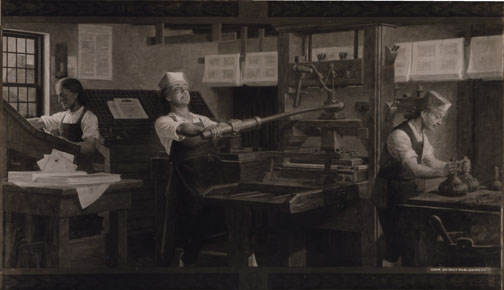
|
Franklin's epitaph, written by himself as a young man: The Body of B. Franklin, Printer; Like the Cover of an old Book, Its Contents torn out, And stript of its Lettering and Gilding, Lies here, Food for Worms. But the Work shall not be wholly lost: For it will, as he believ'd, appear once more, In a new & more perfect Edition, Corrected and amended By the Author. He was born Jan. 6, 1706 Died 17-- (written 1728: Library of America, p. 91) Final Epitaph: Benjamin and Deborah Franklin: 1790 |

|
Charles E. Mills, Franklin the Printer (c. 1900-1920) Photo courtesy Library of Congress. David Martin, Benjamin Franklin (1767) Oil on canvas on panel White House, Washington, D.C., United States |
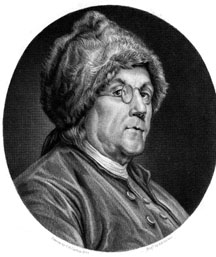
|
Benjamin Franklin (1777) Drawn by C.N. Cochin; Engraved by A. H. Ritchie |

|
|
|
Memoirs of the Life and Writings of Benjamin Franklin L.L.D, F.R.S. Written by Himself. [continued by grandson William Temple Franklin] (Philadelphia: Printed and published by William Duane, 1818) |
|
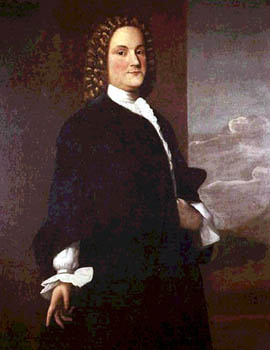
Robert Feke, Young Franklin (1748) |

David Martin, Benjamin Franklin (1772). Year depicted 1766. Pennsylvania Academy of the Fine Arts, Philadelphia |
|
C. N. Cochin drawing, 1777; engraved by A.H. Richie |
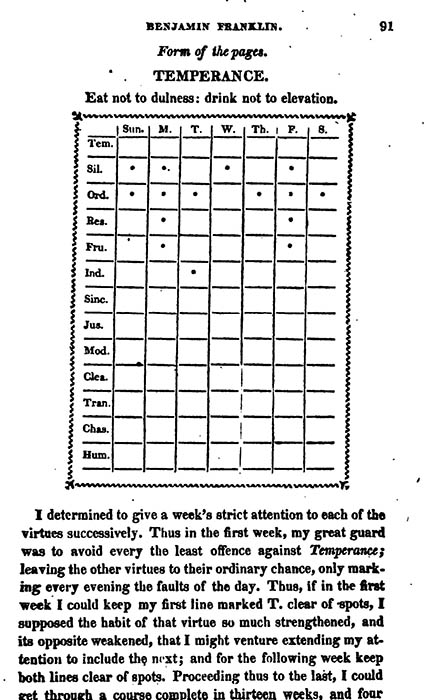
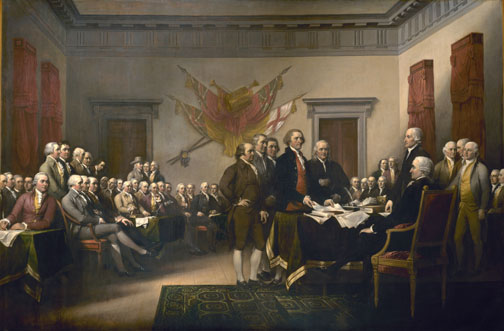
John Trumbull, Declaration of Independence, 1819 |
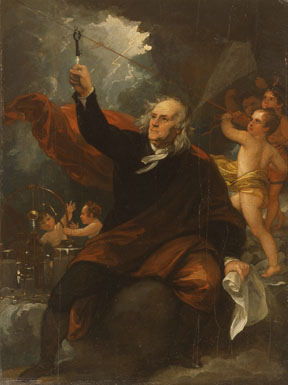
Benjamin West, Benjamin Franklin Drawing Electricity from the Sky (ca. 1816) |